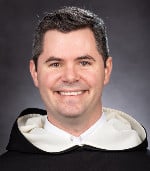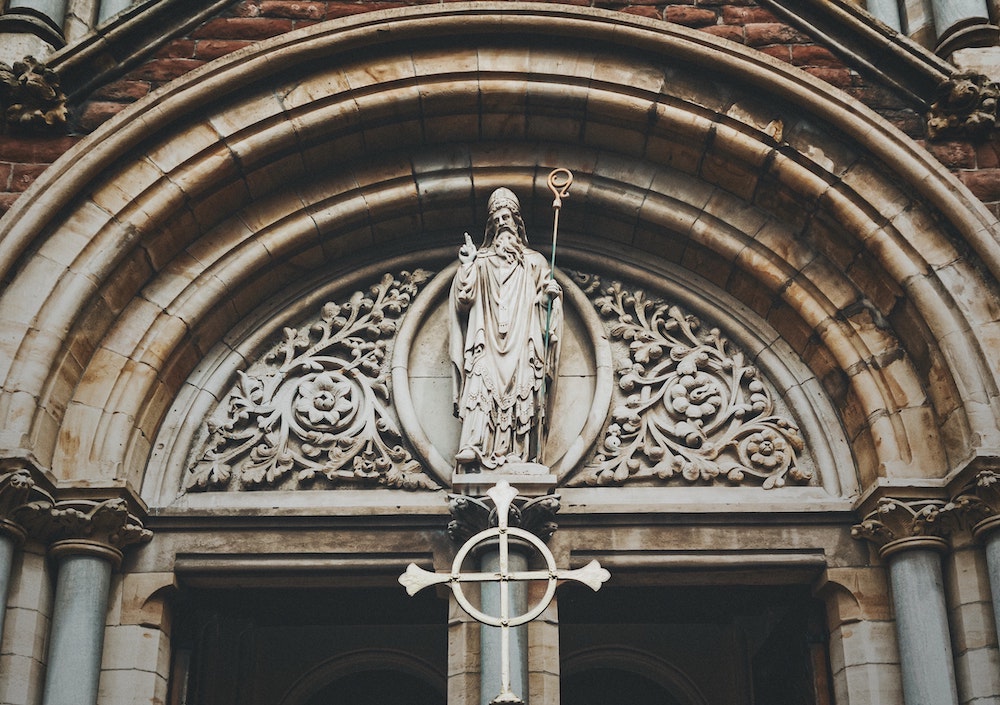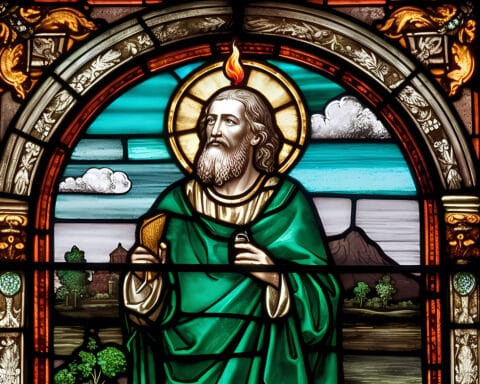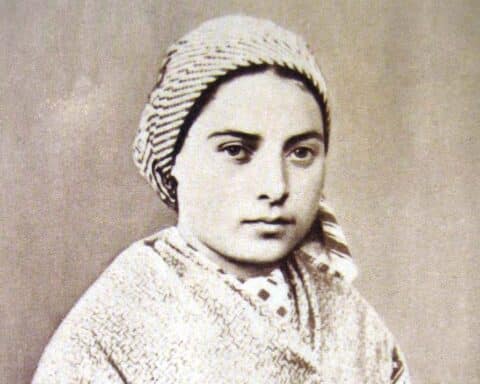
However, the beloved missionary who converted the Emerald Isle was very real indeed! In fact, he left a stunning testament of Christian life that most Catholics have never even heard of, let alone read.
Like St. Augustine, St. Patrick also wrote a confession. Patrick’s “Confessions” is a marvelous personal testimony of faith, and those who read it will find in it an extraordinary account of the grace of God active in his life.
Patrick came from a devout family. His father was a deacon, and his father’s father was a priest (such things were common enough before the Latin Church in the West uniformly embraced priestly celibacy).
Despite all this, St. Patrick says, “At that time, I did not know the true God.” It wasn’t until he was kidnapped at 16 by raiders and taken as a slave to Ireland that he came to really believe. “It was there that the Lord opened up my awareness of my lack of faith,” the saint writes. God’s mercy pierced the pride and ignorance of his youth. St. Patrick tenderly expresses his gratitude to God who “protected me and consoled me as a father does for his son.”
And that is it. That’s the secret to St. Patrick’s spiritual testimony. In fact, it’s the secret of the spiritual life. The psalms put it this way: “Merciful and gracious is the Lord, slow to anger, abounding in mercy” (Ps 103:8).
St. Patrick talks in his writing of a sin that plagued him, something from his youth that other people had found out and were using to discredit his teaching. He says, “They brought up against me after thirty years something I had already confessed before I was a deacon.” It seems to have been a youthful indiscretion, something that belonged to the time from before he met God.
Knowing well his own sinfulness, St. Patrick boldly proclaims the mercy of God. No blackmail, either from Satan or other leaders in the Church could tear him from the love of God once he had found it. At times, he sounds very much like St. Paul: “I spend myself for you, so that you may have me for yours.” Like Paul, Patrick boasts of danger and travels. And like Paul he declares, “It is only by God’s gift that I diligently and most willingly did all of this for your good.”
That confidence in God’s goodness, poured out in an encounter with God, changed his life. He writes, “I am not telling lies: from the time in my youth that I came to know him, the love and reverence for God grew in me, and so far, with the Lord’s help, I have kept faith.” The sins of the past that we have confessed have no bearing on us. They are not our burdens to carry. They belong to God’s mercy.
Patrick concludes, in the face of those who mock and scorn, “I will not be silent, nor will I hide the signs and wonders which the Lord has shown me even many years before they came about.” His life belonged not to his own designs, but to God’s Providence, the merciful working out of his designs.
And there’s no greater secret of the spiritual life to be found than that one great saving truth.
Father Patrick Briscoe, OP, is editor of Our Sunday Visitor. Follow him on Twitter @PatrickMaryOP.





